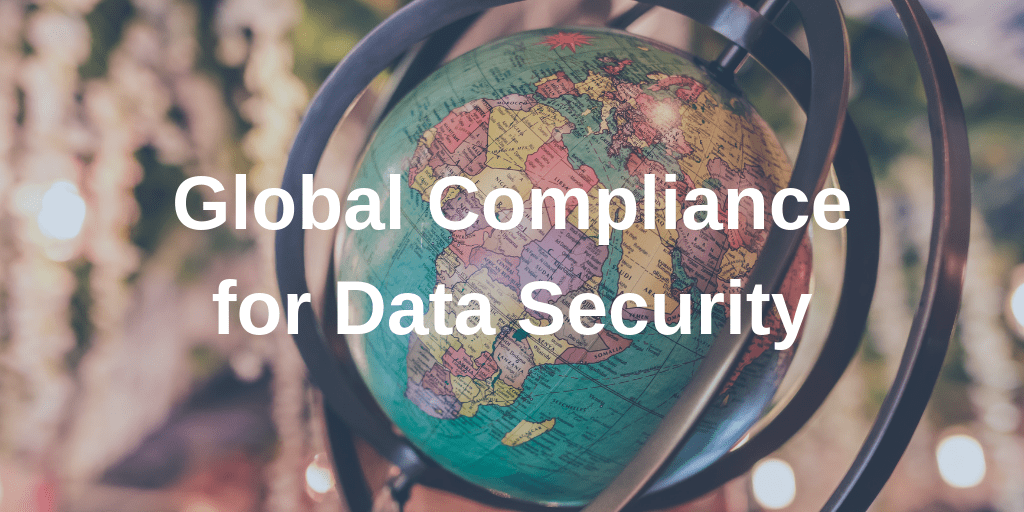
GDPR
Data Security Global Compliance Information
We all know that data security is an integral part of modern business. Ensuring that your data is kept secure is important, but recent data security legislation means that securing data to a high standard is now mandatory and not just good practise.
There are several global standards that all vary slightly in their requirements for achieving compliance. But ultimately they all seek to achieve the same result, ensuring that organisations that store and process data are doing all they can to keep that data safe.
Global data compliance standards include policies like GDPR, PCI DSS, HIPAA and POPI. The key differences between these standards are the severity of the repercussions that these standards impose if organisations fail to meet their criteria.
There is no one simple fix-all solution to these global compliance standards. There is no one piece of software that you can use to solve all of your compliance needs. There are, however, very effective tools that you can use to help make your compliance process run more smoothly.
Compliance is not about approaching the problem, dealing with it and forgetting about it as soon as you think you are “done”. The nature of data security is that it does not have an end, you cannot complete data security in one swoop. It must become a part of what you do and how you do it every day. From educating your employees to keeping up to date with the latest technology. Global compliance standards are not easy to adhere to, but if your organisation adopts the requirements of these standards as new policies that every employee must follow, then compliance because less of a chore and more a part of daily routine.
Taking the first step towards meeting global compliance standards can be daunting. Especially if organisations are staring down a list of enormous changes to the way that they do business. But the journey to compliance begins with a single step and in this case, the first step is most important. As mentioned, compliance is not a task to be completed, it is a journey with no end, but the journey does not have to be a difficult one.
Enterprise Recon is an excellent choice when taking your first step towards compliance because we make it easy to begin your journey. Using our software as a starting point makes all of the remaining tasks in compliance much easier because it allows you to understand exactly where your data is and what you need to do next.
Enterprise Recon is capable of scanning both structured and unstructured data across your entire network and shows you exactly where your sensitive data is. Once Enterprise Recon has completed scanning your network, it returns the results showing what sensitive data you have and exactly where it is being stored by showing the file pathway to the data source.
Once you have located your sensitive data, the tool offers further options to remediated the sensitive data in three different ways. You can mask the data, encrypt it using AES encryption or secure delete to remove the data from your network so that it cannot be retrieved. These options have been designed with global compliance standards in mind and perform the actions to standards that meet common regulations, specifically PCI DSS and GDPR.
We understand the sensitive data is highly sought after by cyber attackers and due to its value, they employ extremely innovative methods of attaining this data from victims (potentially your organisation). With untold numbers of attackers who use cutting edge techniques to steal information, Ground Labs have created a solution that not only allows you to find your sensitive data but also gives you the option to render it extremely difficult for hackers to obtain.
Ground Labs’ Enterprise Recon remediation not only help you to meet compliance standards but also grants you peace of mind by giving you power over your data. The fact is that you may be storing sensitive data that you were unaware of, with our tool, you can find the data you did not know you had and secure it. Our delete function safely renders the data unreadable using a 3-pass approach by first occluding the data with one type of data, then a second type and then a random variety for the third pass. This secure erasure meets several global compliance standards for erasure of data such a GDPR and PCI DSS.
AES encryption is an accepted method for meeting standards such as PCI DSS and HIPAA. Masking allows the user to occlude the data rendering it unusable to hackers. These remediation techniques allow you to make sure that no sensitive data is sitting in an insecure manner on your network.
Begin your compliance journey with us today and book a free one-to-one demo of our software to find out how we can help you to meet the requirements of global data security compliance standards.
